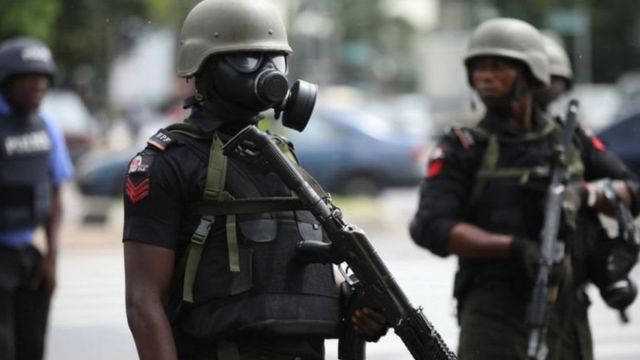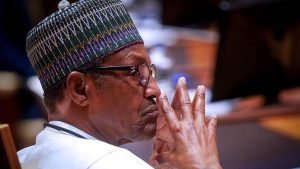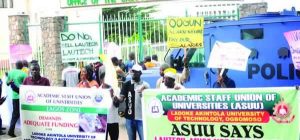
My father-in-law was a policeman, a fine policeman, from the forties. When his daughter Helen met me, we were completely lost in love and we felt the universe had a planet freshly created for us to live out our lives in unmeasurable splendour. My policeman father-in-law, Sergeant Anurukem, sensed this, and after a week of Helen and I roaming on this planet, he sent her back from Owerri to Emekuku, their ancestral home, ten kilometres away, with the instruction to his dear wife that if I should dare show up in Emekuku, she should shoot me! Well, she did not and I am alive to write this article.
Obviously, I am fond of the police and take advantage of this familiarity every now and then. On the highway, I can be difficult, in fact, intransigent to a fault. I do not like to be stopped and I do not like to answer questions. ‘Wey your patikulas’? Helen would pull my trousers and tell me they want to see your papers. ‘Thank you, madam, for helping us.’ ‘Thank you, officer, I am the daughter of a policeman.’ He directs his next remarks to me, ‘Oga, so you marry this fine policeman pikin. You lucky ooo! Policeman pikin all of dem good people. Oga give us something for Coke. Life too hard. See how we dey sweat.’ Sometimes they get their coke. The journey continues. But when the request from the traffic policeman goes from my driving licence to my vehicle licence, insurance, and road worthiness. When the policeman demands proof of ownership and inspection of the vehicle, my veins rapidly fill up engorged with venomous blood. I would step out of the car and begin the tirade, ‘where were you in 1940? Where were you in 1950? Where were you in 1960? Where were you in 1970? Where were you…?’ Helen, exasperated, would quickly exit the car and plead with the officer, ‘please leave my husband alone; he is not feeling well today.’ Silent but furious, I would return to the car and drive off, come hell come Armageddon! But it is not always like this: I can be quite understanding.
We were once travelling home to Mbaise from Ibadan for the Christmas festivities. We had passed through many police checkpoints and I let the police share in my joy. When we got to the Niger Bridge, we were stopped before we drove into the bridge at the Asaba end and again at the Onitsha end. I felt this was too much but I was still quite calm. ‘Anything for the boys, sir?’ ‘I am sorry officer. I don’t have anything left. All I have now is for my parents and relatives at home.’ ‘But sir, we won’t be the unlucky ones.’ I took another look at him and liked him for his response. No, they will not be the unlucky ones, I felt. I reached into my pocket and gave him a Christmas present. I have many personal stories with the road traffic police, the search and seize, or search and destroy officers. It is all a pathetic story.
The 1998 Winner of The Nobel Prize in Economic Science, Amartya Sen, makes the case for development in terms of the advantages that a person has, that is, the substantive freedoms they have to lead the kind of life they have reason to value. Thus, he argues, poverty must be seen as the deprivation of basic capabilities rather than merely the lowness of incomes, which is the standard criterion for identifying poverty. Of course, he makes it clear that the perspective of capability-poverty does not deny the sensible view that low income is one of the major causes of poverty, since lack of income is a strong predisposition for an impoverished life.
Read Also: Nigeria Police Arrest Arts Curator, Aderemi Adegbite without Cause
Joseph Stiglitz, Nobel Laureate in Economic Science, has argued in similar vein on the broken promises of IMF and the World Bank and their corollaries that have made it difficult for Third World countries to have the freedom to choose the kind of life they want to live in the face of globalization. I stand with them and say we would like to have freedom from illiteracy, from poor leadership, from preventable maladies, like child mortality, deaths in pregnancies and child birth, etc. Many villagers suffer from income deprivation but more from capability-deprivation. I can write what I am writing now because I have WiFi to receive and send out mail using the web. If there is no WiFi available in Mbaise, or Owerri, but only in Lagos, I would have to go there to send my mails. We must not forget that we got mobile phones in 1999 when President Obasanjo came to power. If water supply is inadequate in Mbaise, my people would have to travel to where they can get water, though their incomes may be sufficient for their daily lives. The same can be said for supply of electricity. Should they spend their incomes on generators and fuel instead of providing education for their children? What of good education, where are the schools? Many parents in Mbaise send their children to the moribund public schools. To take them to better schools they would have to travel elsewhere to enrol them in private schools. I must say, however, that the Mission schools are quite good.
Where do the police come in all this? In the eyes of many Nigerians, the Federal Government of Nigeria that they know and see every day of their life, and interact with for good or ill is the police on their roads. If the people are on foot, they may just continue on their journey. If they have a big bag and the police suspect they may have some ill-gotten goods or human heads inside, they may be asked to stop and be searched. Multiple exchanges ensue and the individual may be required to part with some cash. Okada riders can be flagged down and be molested if they do not have a valid licence. Again, they will be required to pay up. Buses, danfos, bolekaja, with passengers suffocating in the heat of the congested vehicle are routinely stopped, may be searched, but more often than not, they are asked for regular ‘tithes.’ The police are forlorn and Nigeria with them, that is why I see the Police as poverty. What the police we meet in our daily lives do, drives home the axiom that they are the face of poverty in a country of abundant natural resources, including oil. We cannot live the lives we have reason to value. Nigeria will not let us.
The Inspector General of Police (IGP) is the boss of the police. I shall never forget what the late indefatigable Dele Giwa said in an article, that Sunday Adewusi (IGP 1981-83) thinks that he is God but he forgets that God does not wear tribal marks. The IGP is like the god of the police and when he falls short on integrity and moral rectitude in his duties, he becomes the face of poverty. We are unable to live the kind of life we want even with satisfactory incomes. Godwin Sogolo in his article in The Guardian, of 12 September 1988, Confessions of a Policeman, grave credit to the IGP, Muhammadu Gambo, for his frank admission of the failings of the police under his command in spite of his efforts to effectively give Nigeria a Police Force to be proud of. The police man seems incurable in his pathetic thievery, giving us all the face of poverty. In one of the most celebrated trials in the country, former Inspector General of Police, Mustafa Adebayo Balogun, was arrested by Nuhu Ribadu, the EFCC Chairman, tried for about N5.7 billion of corruption and jailed for nine months, some of it spent in hospital for treatment. The ugly face of poverty stares at us with invidious ridicule. What of kidnappings and murder of innocent victims? What of killing of Christians? Where are the police?
Who watches the watchers? The IGP watches over the country to ensure we are all safe and secure to carry on our lives as hardworking citizens. If he should fail and there is sufficient proof of his corruption, EFCC steps in and takes him to court. But now, the Chairman of EFCC himself has been removed from office amidst allegations of corruption. The police remind us, if we have forgotten, that they are the face of poverty, in which circumstance even ordinary Nigerians cannot live the life they value.
It was not always like this. We have had eminent IGP’s and the late Alhaji Muhammadu Dikko Yusufu was a sterling example of one on whose back we could ride to greatness. The Guardian in its editorial of Sunday May 3, 2015 doused our hopes that his death ‘has further constricted the rapidly shrinking class of eminent Nigerian senior citizens who served the nation well.’ My generation hugely appreciates his gigantic contributions to moral probity and propriety. The good times will come again, we hope, when, wherever we are in this country, we can feel we have the freedom to live the life we value.
Prof. Mark Nwagwu

